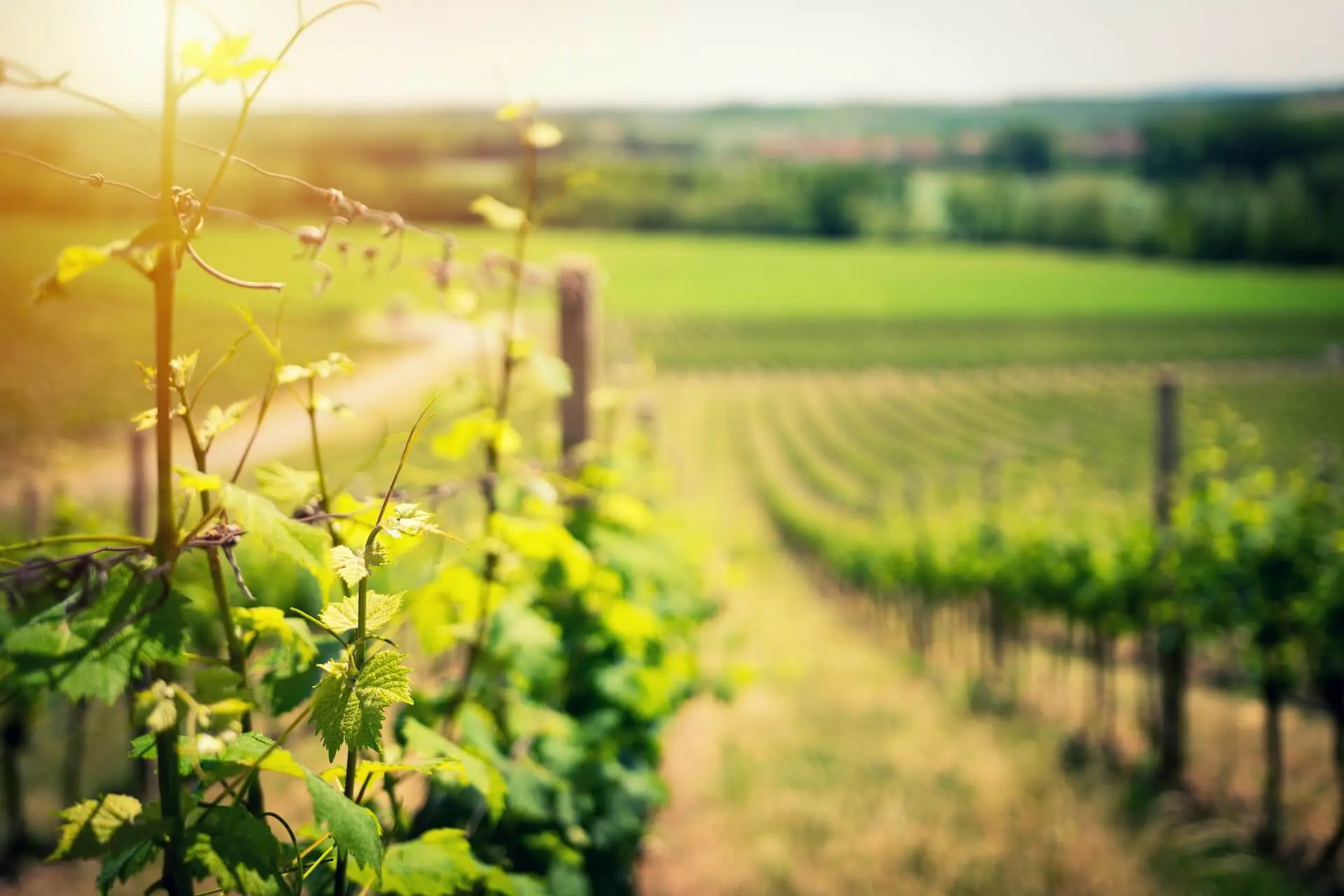Sustainability is no longer a buzzword. It has woven itself into the fabric of almost all industries worldwide, and the wine industry is no exception. If you are a lover of the aged grape, the interaction between wine and sustainability will certainly interest you.
The growing importance of sustainability
Sustainability is a broad term that touches many facets of our lives and businesses. In the context of the wine industry, it refers to efforts to reduce environmental impact, promote social justice and remain economically viable.
The importance of sustainability has only increased in recent years, and modern wine lovers and producers are placing increasing emphasis on sustainable practices. More and more consumers are concerned about the environmental impact of the products they buy. These conscious consumers want to know that the wine they are drinking comes from wineries committed to sustainable practices, from conserving water to reducing pesticides.
For wine producers, sustainability offers a way to show that they not only produce delicious wines, but also contribute to protecting our planet. By implementing sustainable practices, they can reduce the impact of their winemaking on the environment, improve the health and well-being of their employees and contribute to a positive image of their brand.
Green grapes: defining sustainability in the wine world
What exactly does sustainability mean when we talk about wine? In the broadest sense, sustainability refers to the ability to sustain something over the long term. In the context of wine and viticulture, this encompasses a wide range of practices and principles aimed at reducing environmental impact, improving social justice while remaining economically viable.
Sustainable agricultural practices
In viticulture, sustainable practices include the efficient use of water, protecting soil from erosion, minimizing the use of chemical fertilizers and pesticides, and promoting biodiversity. Many wineries are also introducing renewable energy sources, such as solar power, and minimizing water consumption through advanced irrigation techniques. Recycling and composting are also common practices to reduce waste.
Sustainability in the wine cellar
But sustainability also extends into the wine cellar. This includes minimizing energy consumption during the winemaking process, reducing CO2 emissions during wine production and transportation, and using sustainably produced packaging. Some wineries also have their own water treatment systems to treat and reuse wastewater.
Social and economic sustainability
Social and economic aspects are also an important part of sustainability in the wine industry. This means fair wages and good working conditions for employees, support for local communities, and economically viable business models that sustain the company over the long term.
So, when we talk about sustainable wine, it’s not just about the grapes and how they are grown. It is about the whole process from grape to glass, and how this process affects the planet, the people involved, and ultimately the wine itself.
The impact of green practices
Sustainability already has a big impact on the way wine is produced. Instead of focusing purely on the quality and quantity of the wine harvest, winemakers are now also driven to minimize their environmental impact. This is leading to changes in viticulture, with a greater focus on organic and biodynamic methods, and in the winery, where energy efficiency and water conservation are becoming increasingly important.
The challenges of sustainable wine production
Despite the benefits, sustainable wine production also brings challenges. For example, it may take more time and effort to manage vines manually instead of using chemical pesticides and herbicides. Implementing energy-saving measures and water-saving systems can also require a significant investment. Moreover, the effects of sustainable practices on wine quality and taste are still a subject of research and debate.
The benefits of sustainability in wine production
Despite these challenges, the benefits of sustainable wine production are clear. It has the potential to improve vineyard health, increase biodiversity, improve wine quality and reduce the carbon footprint of wine production. Moreover, it can also contribute to a positive image of the winery and meet growing consumer demand for environmentally friendly products. All in all, it is clear that sustainability has already changed wine production and is likely to continue to do so.
Although the road to full sustainability in the wine industry is still long and full of challenges, it is a journey that both wine producers and consumers are willing to take.
Pioneers in green wine: Notable wineries and regions
Biodynamic wines from Burgundy: Domaine de la Romanée-Conti
One of the most respected wineries in the world of sustainable wine production is the Domaine de la Romanée-Conti, often abbreviated to DRC. This prestigious winery from Burgundy, France, is known for its exceptional Pinot Noir and Chardonnay wines, produced biodynamically. DRC’s wines are praised worldwide for their exceptional quality and finesse, demonstrating that sustainable practices can produce outstanding results.
Organic wine production in California: Bonterra Vineyards
In the United States, Bonterra Vineyards is a pioneer in organic wine production. Located in Mendocino County, California, Bonterra has been growing organic fruit since 1987. They strongly believe in respecting the earth and the natural growth cycle of the vines. Their wines range from refreshing whites like Chardonnay and Sauvignon Blanc to rich reds like Cabernet Sauvignon and Zinfandel.
Sustainability in South Africa: Waterkloof Wines
Further south, in South Africa, Waterkloof Wines is an excellent example of a winery that takes sustainability seriously. Waterkloof follows biodynamic farming practices and uses natural, organic techniques to produce their wines. They use horses to plow their vineyards and have their own composting program to nourish their soil. Their wines, including a seriously good Chenin Blanc and a deep, complex Syrah, demonstrate the richness and diversity of the South African terroir.
New Zealand sustainability: Yealands Estate
Yealands Estate in New Zealand is also a pioneer in sustainability. They are the first winery in the world to be certified with the CarbonZero certification from its inception and have implemented many sustainable initiatives, such as using solar energy, reusing rainwater, and planting native trees. Yealands is known for their Sauvignon Blanc, which beautifully expresses the fresh, vibrant characteristics of the Marlborough region.
These wineries are just a few examples of the many producers worldwide who are embracing sustainability and proving that it is possible to produce high-quality wines that are also good for the planet. They embody the proposition that good wine begins with caring for the vine and the land on which it grows.
Navigating the green vineyard: Choosing sustainable wine
Pay attention to certifications
One of the easiest ways to recognize a sustainably produced wine is to look for certifications on the label. Several organizations offer certifications for sustainable, organic and biodynamic wine production. Some examples include Demeter (for biodynamic wines), Organic USDA (for U.S. organic wines) and Milieukeur (for Dutch sustainable products). These certifications indicate that the producer follows certain standards and guidelines to minimize environmental impact.
Do your research
Information is power. Before buying a wine, you would do well to do some research on the winemaker and his production methods. Many wineries committed to sustainability are happy to share this information on their websites. Look for information on how they manage their vineyards, how they conserve water and energy, and how they contribute to their local community.
Taste and learn
Sustainably produced wines can be as diverse and complex as their traditional counterparts. Don’t hesitate to try different wines and learn about the unique flavors and textures that sustainable production methods can produce. This will not only deepen your appreciation of wine, but also enhance your understanding of how sustainability affects the final taste of the wine.
Get advice
Finally, don’t hesitate to ask for advice. Wine merchants, sommeliers and other wine professionals often have in-depth knowledge of the wines they sell and can help you choose a sustainable wine that suits your taste and budget. They can also give you more insight into the sustainable practices of the winemakers they feature. Choosing sustainably produced wine does not have to be intimidating or difficult. With a little knowledge and research, you can find wines that not only taste great, but also contribute to the preservation of our planet.
The green glass half full: Reflections on sustainability in the wine world
As the discussion of sustainability increases across all industries, it is critical that we recognize the impact of our choices as consumers. In the wine world, this impact is seen in the way wine is produced, packaged and distributed. Sustainable viticulture is not only about minimizing environmental impact, but also about caring for the people who are part of the wine industry and ensuring long-term economic viability. It is a complex but undeniably important issue that affects us all.
As consumers, we can play a major role in this sustainable evolution. By choosing wines from producers committed to sustainability, we can support these green initiatives and make a positive impact. It is a journey full of challenges, but also full of opportunities. It is an opportunity to revisit the world of wine, to learn, grow and discover. And, like tasting a new wine, it is a journey best undertaken with an open mind and a willingness to discover new things.

